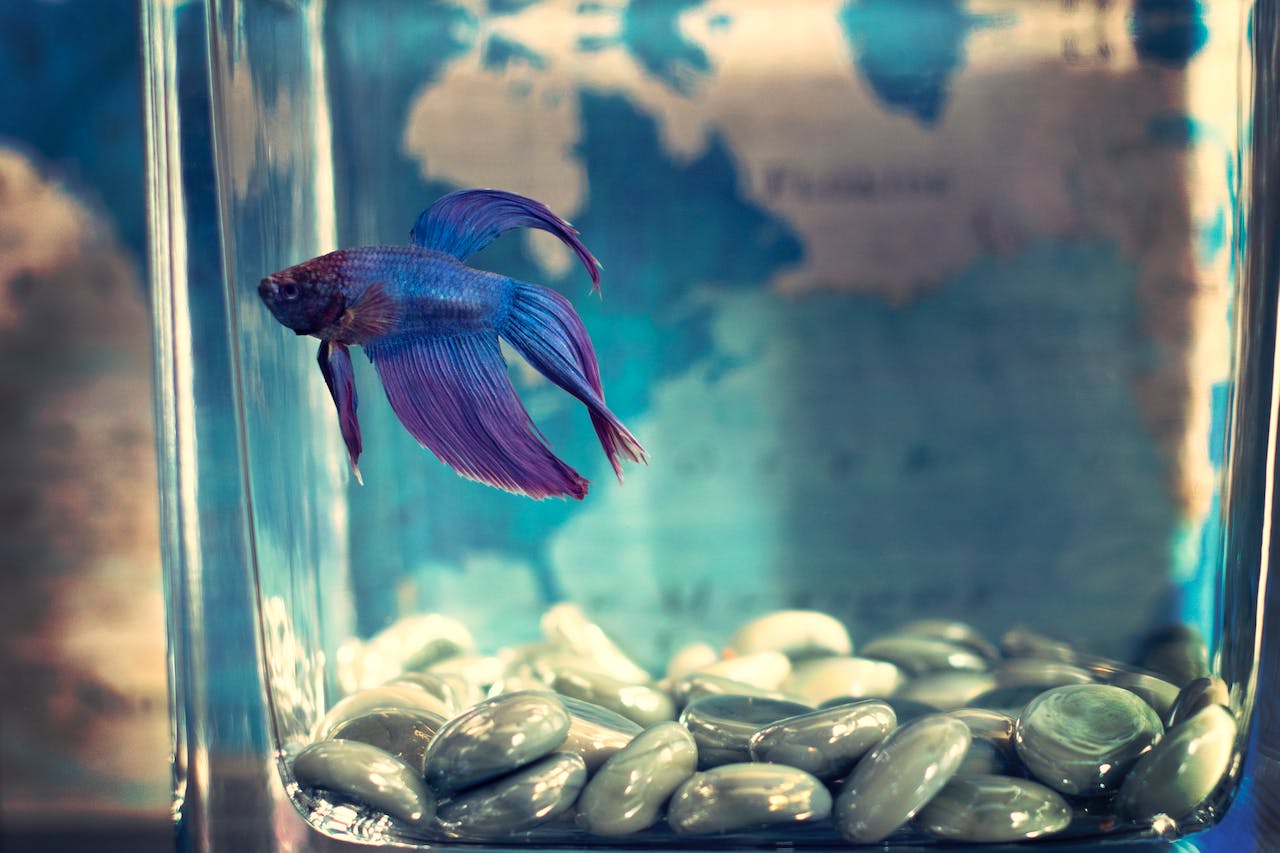
Betta fish, with vivid colors and elegant fins, are a popular choice for aquarists worldwide. However, keeping them healthy requires more than just a water bowl and occasional feeding. In this post, we’ll delve into the best practices for Betta fish care, ensuring your aquatic companion thrives.
Setting Up the Perfect Betta Fish Tank
When it comes to housing your Betta, a spacious tank is crucial. A minimum of 5 gallons per fish is recommended to provide ample swimming space. The water conditions should mimic their natural habitat, with a pH between 6.5 and 7.5 and temperatures around 76 to 81 degrees Fahrenheit. Cycling the tank before introducing your Betta is a critical step to establishing beneficial bacteria and a stable environment.
Nutrition for Your Betta
Diet is paramount for Betta’s health. Mixing high-quality pellets, frozen, or live foods like brine shrimp will ensure a balanced diet. Feed your Betta once or twice daily, offering only what they can consume in two minutes to prevent overfeeding.
Maintaining a Clean Environment
Regular tank maintenance is non-negotiable. Weekly water changes, along with siphoning the substrate, will keep the environment pristine. A reliable filtration system, preferably with adjustable flow, is also necessary since Bettas prefer calm waters.
Betta Fish Health Management
Watch for signs of distress or illness, such as discoloration, lethargy, or loss of appetite. Prompt water tests and adjustments, along with quarantine for new tank mates, can prevent many common diseases. Consulting with a veterinarian specializing in fish can be invaluable if you suspect health issues.
Enrichment for Betta Fish
Bettas are intelligent creatures. Adding live plants, caves, or a mirror for short periods can stimulate them and prevent boredom. Be mindful of sharp edges on decorations to protect their delicate fins.
The Role of Water Parameters
Monitoring water temperature and pH levels with a reliable testing kit is essential. Sudden changes can stress your Betta, weakening immunity and disease susceptibility.
Social Environment for Betta Fish
Bettas are known for their territorial nature. While some can live peacefully with particular tank mates, others may become stressed or aggressive. Observing your Betta’s behavior will guide you in creating a harmonious tank community.
Handling and Interaction
Handling should be minimal, but if necessary, use a soft net and be gentle. You can also engage with your Betta through training exercises, like teaching them to follow your finger or jump through hoops.
Betta Fish Myths Debunked
Despite common beliefs, Bettas need more than a tiny bowl to live happily. They thrive in well-maintained tanks with proper filtration and space to swim.
Watch Out for Symptoms
When a Betta is feeling unhealthy, there are many signs. You should observe your fish often, and you must understand sick Betta fish behavior so that you can take quick action before it gets worse.
Resources and Support
Joining Betta fish communities online or in person can provide additional support and knowledge-sharing opportunities. There are also numerous books and websites dedicated to Betta care.
Conclusion
Caring for a Betta fish is a rewarding experience that requires attention to detail. By following the guidelines outlined in this article, you’ll be well on your way to ensuring a healthy and vibrant life for your aquatic friend.
Latest Articles
- Comprehensive Guide to Fence Installation: Choosing the Right Materials and Services
- Exploring Common Home Pollutants and Their Impact
- Tips For Indian Stock Market: A Comprehensive Guide for Investors
- RRB Technician Vacancy 2024: Everything You Need to Know!
- Countdown to Election 2024: Assam’s Political Landscape

Comprehensive Guide to Fence Installation: Choosing the Right Materials and Services

Exploring Common Home Pollutants and Their Impact

Tips For Indian Stock Market: A Comprehensive Guide for Investors

